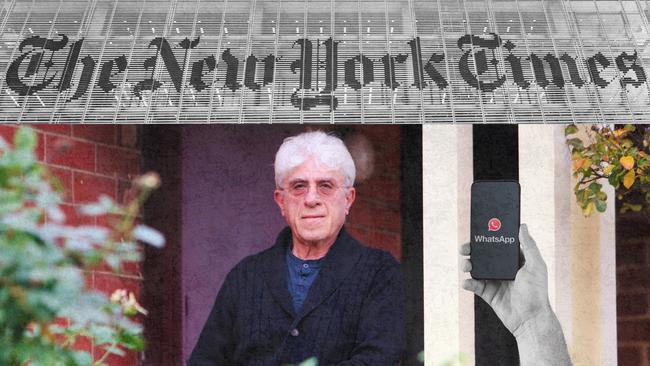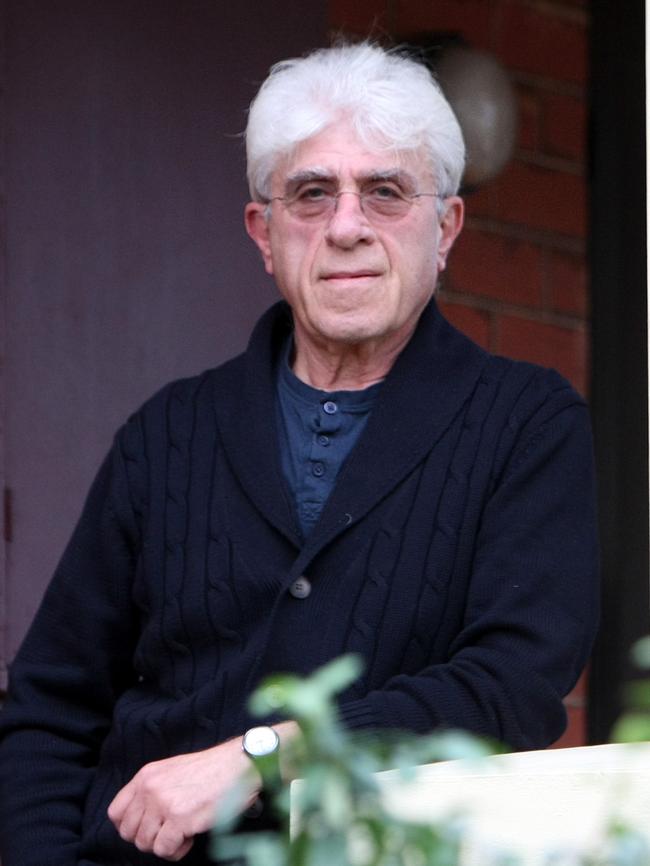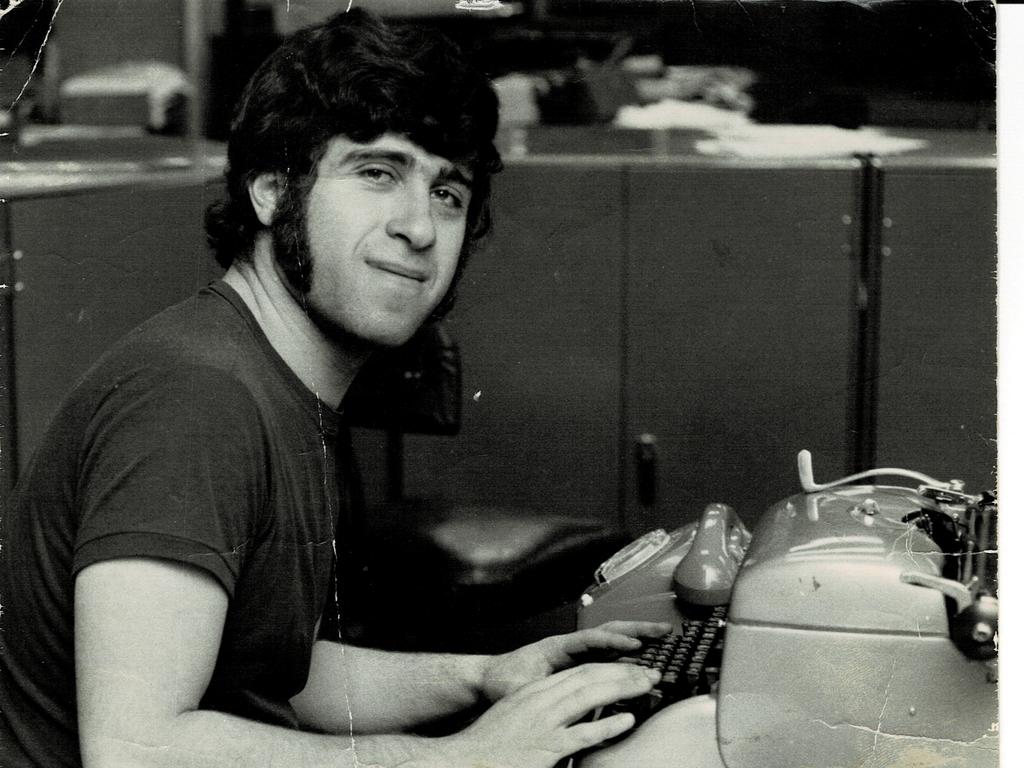
It is true that I was a journalist and editor before the sewers of social media filled up with lies and hate and conspiracy theories and journalists thought they had to swim in those sewers.
But none of this wholly explains how it is, for instance, that an increasing number of journalists believe it is not important for their journalism to be fair and accurate and as far as possible unbiased.
None of this explains how it is that many journalists – and their union – now believe it is OK for journalists to be activists for a cause and at the same time, report on those causes.
And none of this – the internet communications revolution, the social media sewers and at the same time, the fracturing of the economic model for most mainstream media – explains why senior newspaper and television news directors and executive producers apparently cannot enforce standards in the outfits they run. Standards and ethical principles they profess to fervently support.
This abandonment of old-fashioned journalistic ethics in journalism – in the Anglosphere, in particular – has been apparent for some time. But it has accelerated alarmingly in my view since the Hamas massacres on October 7 last year and the subsequent ongoing war between Israel and Hamas in Gaza.

I have written from time to time about journalism and its challenges for The Australian in the past year or so. It has been a great experience and a privilege.
At the same time, I have written nothing about any of this for The Age, the paper I edited for seven years and where I worked for most of the five decades of my life in journalism.
It is of course their right not to publish me, but I reckon it illustrates just how fraught it has become for some editors, how difficult it now is for them, to allow a robust debate about the way journalism is changing and the way those changes are impacting the media outfits they ostensibly run.
Which brings me to The New York Times, considered by many people, not entirely fancifully, to be one of the world’s great newspapers.
A few days ago, The Australian published a piece from the Wall Street Journal, a fine and fair piece of reporting, about how a New York Times reporter based in Melbourne not long after October 7 joined a private WhatsApp group of mostly young Australian Jewish writers, artists and performers. The reporter was invited to join the group because she had written a story for the NYT about the revival of Yiddish in Melbourne - my family are part of that revival - and had become friendly with one of the Yiddish activists she interviewed.
In the main, the WhatsApp chats were about the rise of hostility towards Jews after October 7, the way some of them felt under siege because they were identified as Zionists and therefore supporters of genocide, the way they felt cancelled by the music industry and by writing organisations.
Some in the group discussed sending letters to the ABC for instance, complaining about the work of some of its journalists and presenters.
This is the group the New York Times reporter joined and then, months after she joined and just days before she quit the group, she downloaded 900 pages of these private chats – the whole content of the WhatsApp – and handed them to someone who subsequently passed them on to anti-Zionist activists, some of them vicious social media bullies, who duly published the personal information about many of the 600 members of the WhatsApp group.
In a letter I have sent to The New York Times – to which I have received no reply – I wrote this about the result of the leaking of the WhatsApp chats by the New York Times reporter: “Private personal details were posted including details of the family of group members. Details of the small businesses some of them ran were revealed. Can you imagine the trauma that ensued? Can you imagine the hate online these people were subjected to? There was widespread suffering. This doxing was so painful for so many group members.
“I know this because some of them are my friends and family. The pain remains, the doxing continues.
“I know that you know all this because many of the suffering WhatsApp members have written to you.

“I have not named the reporter because my concern – and anger – is not about her – and I am certainly not advocating she be sacked – but about the New York Times and what this whole sorry episode says about the state of journalism, the values and ethics of journalism when a reporter for the New York Times, one of the world’s great liberal newspapers, can think it is okay to behave the way she did.”
Here is what else I wrote in that letter to the New York Times – and yes, I did identify myself as a former editor-in-chief of The Age: “Why has the Times not covered this story beyond being forced to admit to a Wall Street Journal reporter that the Times journalist had behaved inappropriately (describing the behaviour as a clear violation of the paper’s ethics)? And that appropriate action had been taken – I assume this means the reporter has been reprimanded …
“What I am asking is this: Where is the coverage in the Times of this troubling – and clearly unethical – behaviour by a reporter working for the Times? How did this happen? What responsibility does the Times editors take for what happened (to those scores of Jewish Australians who were doxed as a result of what the reporter did?) Where is the coverage? From the Times, which is proudly committed to fearless journalism and to self-examination?
“Is someone working on the story? If so, how long will this story take? Frankly, it’s not that complicated. I speak from many decades of experience. This is a straightforward story. It does not require months – let alone weeks – of research and dozens of interviews.”
I doubt I will receive a response from The New York Times.
I am less concerned about that than I am about the lack of interest in this story among journalists in Australia as far as I can tell. And I do not understand how it is that my old paper has not covered this story.
I know that journalists – and editors for that matter – do not like public self-examination; they much prefer to do the scrutinising rather than be the subject of scrutiny. But on any reckoning, this is an interesting media story, a great one in my opinion.
It is sad – to say the least – that it has received so little attention.
Michael Gawenda is the former editor-in-chief of The Age and is the author of My Life as a Jew (Scribe, 2023).




Quite often in the past year or so, it has struck me, an old journalist who worked mainly in the pre-internet era, that the ethical foundations of journalism in liberal democracies like Australia have been reduced to rubble.